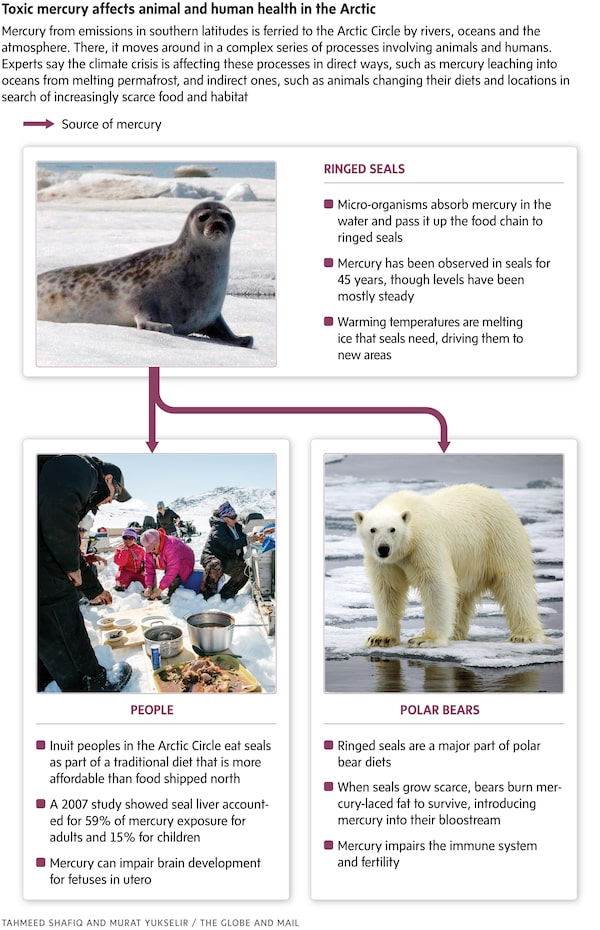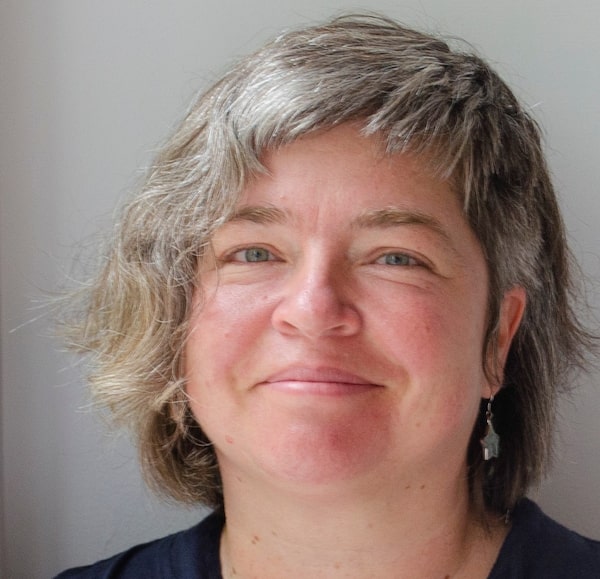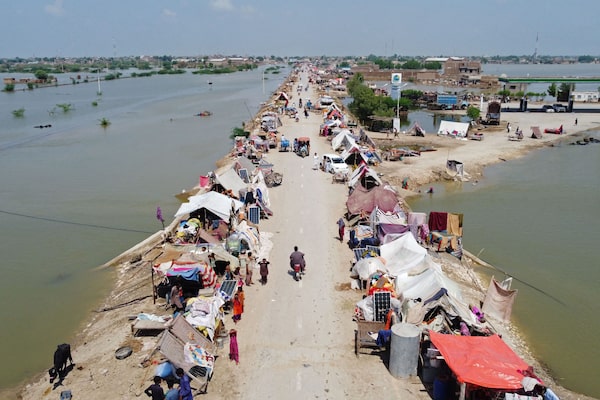If you’re reading this on the web or someone forwarded this e-mail newsletter to you, you can sign up for Globe Climate and all Globe newsletters here.
Good afternoon, and welcome to Globe Climate, a newsletter about climate change, environment and resources in Canada.
We have received four nominations for the international Online Journalism Awards, including for our coverage of deadly wildfires in British Columbia, and the unprecedented heat wave in Lytton, B.C., that forced residents to flee their homes before the community was engulfed in flames. The project involved journalists from across the newsroom, who told the stories of people caught up in a tragedy that would previously have been unimaginable. The work highlighted the way Canada is grappling with the consequences of climate change.
The winners of the Online Journalism Awards will be announced next month. Stay tuned!
Now, let’s catch you up on other news.
Noteworthy reporting this week:
- Electric vehicles: Glitz, glamour and speed with no CO2 at Formula E
- Zero-carbon building: Canada Post processing centre makes mark for sustainability
- Pakistan flooding: Overflowing, unprecedented floods that have inundated a third of the South Asian nation as they scramble to protect homes and await financial aid. Read the latest updates in our explainer, plus information on what you can do to help.
- Fire: Fire-behaviour specialists in B.C. provide critical information to battling blazes
- Water: Mississippi’s capital is dealing with its fifth water crisis, leaving citizens with dry faucets. Meanwhile, in Canada’s north, Iqaluit water issues are called a matter of Arctic security.
- Space: The race is on as U.S., China pursue plans to tap into the moon’s resources
- From The Narwhal: BC Hydro says it will replace the wetlands Site C destroys, but experts say it’s impossible
A deeper dive
A landmark report reveals more effects of atmospheric mercury
Tahmeed Shafiq is a summer staff editor with The Globe. For this week’s deeper dive, he talks about a recent report on how mercury is posing increasing health risks for wildlife and Indigenous communities.
I reported on the 2021 Arctic mercury report from the Arctic Monitoring and Assessment Programme as part of my stint as a summer staffer at The Globe’s editing desk.
The finds are sweeping. Atmospheric mercury has increased tenfold since the Industrial Revolution — the chemical began to appear in the Arctic at the same time, confirming that industrial processes were adding far more of the chemical to the air than natural ones. When we look at the mercury that’s built up over time, 90 per cent comes from human activities, and 98 per cent of that is mercury produced far from the Arctic but carried north by air, rivers and oceans. In my article, I detail the consequences for wildlife and Indigenous communities in the region.
The first thing that stood out to me was the scale of the research. The report is a type of survey study, meaning it largely pulls together research that’s already been conducted in smaller, separate studies. Scores of studies and a decade of new data (obtained following the last report in 2011) produced the most comprehensive understanding of mercury in the Arctic Circle to date.
Another thing that stood out to me was the methodology of the report, and the collaborations with Inuit communities. The partnerships angle data collection toward the concerns people have about contaminants in their environment, and Indigenous knowledge can even change the way research is conducted.
Aquatic life-forms such as plankton absorb mercury suspended in ocean water and transmit it to animals that eat them. Ultimately, toxic compounds can be passed on to Indigenous communities that hunt for subsistence or cultural tradition – endangering people who are already among the most exposed to mercury in the world.
I spoke to Lucy Grey, a report co-author, who told me self-determination is particularly important in mercury health research. The 2018 Global Mercury Assessment study from the United Nations identified Indigenous communities in the Arctic as among the most exposed to mercury in the world. She said the overwhelming majority of emissions are produced outside the region, but “found in our dinner plates.”
I’ll be done my summer with The Globe by the time this newsletter reaches you. If you’d like to follow my reporting, I share my work on Twitter. Thank you for supporting The Globe’s vital climate journalism. I hope to see you again soon. Cheers!
- Tahmeed

Toxic mercury affects animal and human health in the ArcticThe Globe and Mail
What else you missed
- Ottawa rejects Atlantic Canada’s request for extension to submit climate plan
- U.S. court ruling reverses block of Hydro Quebec power plan in Maine
- B.C. scientists hopeful in fight against mites that kill honeybees
- Native trout returned to alpine lake in Banff National Park for the first time in 50 years
- Elizabeth May wants to lead the Green Party again, but with a twist
- Thousands battle ‘catastrophic’ floods after Chad’s heaviest rains in 30 years
- California wildfires prompt evacuations amid heat wave
- Canada invokes 1977 pipeline treaty with U.S. in separate Line 5 dispute
- ‘Still a good day for Canada’ despite delay of Artemis moon rocket launch: minister
- Bogus information online, climate change top Canadian fears in latest Pew survey
- Zimbabwe moves 2,500 wild animals due to climate change
- Six arrested after Extinction Rebellion protest inside British parliament
Opinion and analysis
Patrick Brethour: The carbon-pricing fight heads east, for the Tax & Spend newsletter
Joanne Culley: Backcountry bliss an escape from the 24-hour news cycle, for the First Person series
Green Investing
Climate summit will fight for attention as energy crises flare
COP27 takes place in Sharm el-Sheikh, Egypt, in November, the next instalment in a three-decade run of meetings since the UN Framework Convention on Climate Change was established. But in the meeting is getting nowhere near the attention that last year’s conference in Glasgow received.
The meeting will focus on how countries are making progress in enacting the necessary policies to live up to commitments they made in the 2016 Paris Agreement. It will also act as a temperature check on the world’s finance industry, which set priorities last year to align its activities to the Paris climate goals. This includes dealing with the painful economic impact of phasing out high-emitting assets, such as coal-fired power plants. The energy crisis: That is where it gets messy this year. Read about why Jeff Jones thinks that COP27 is so important this year.
- Canadian banks’ climate commitments lag expectations of UN-led coalition: Greenpeace
- Six stocks set to benefit from new U.S. law tackling climate change
- RBC climate action mild enough to pass Texas fossil fuel test
- Toyota to invest $5.3-billion in Japan, U.S. for EV battery supply
Making waves
Each week The Globe will profile a Canadian making a difference. This week we’re highlighting the work of Jen Gobby doing climate activism and research.

Jen Gobby, climate activist and founder of Research for the Front LinesHandout
My name is Jen Gobby. I am 46 years old and living on unceded Abenaki territory in rural Quebec. I have been a climate activist and researcher for many years and recently, I decided to bring together my passion for research and my commitment to climate justice, creating a new organization called Research for the Front Lines.
We connect communities on the frontlines of the climate crisis with researchers with time and skills to offer. We support community-led research collaborations that address the causes of climate change and that promote solutions and alternatives. To me, the most powerful force for transformative change in Canada is Indigenous communities standing up to protect the lands and waters they love and the natural systems we all depend on. But they are under-resourced, and even criminalized for the important work they are doing. Active support from non-Indigenous folks is needed to tip the balance towards a climate safe future. Let’s all find ways to support this incredible work!
- Jen
Do you know an engaged individual? Someone who represents the real engines pursuing change in the country? Email us at GlobeClimate@globeandmail.com to tell us about them.
Photo of the week
We have a photo gallery of the flooding that is devastating Pakistan in what the climate Minister called a “climate catastrophe”

This aerial photograph taken on August 31, 2022 shows flood-affected people taking refuge in a makeshift camp after heavy monsoon rains in Jaffarabad district of Balochistan province. Army helicopters flew sorties over cut-off areas in Pakistan's mountainous north on August 31 and rescue parties fanned out across waterlogged plains in the south as misery mounted for millions trapped by the worst floods in the country's history.FIDA HUSSAIN/AFP/Getty Images
Guides and Explainers
- Want to learn to invest sustainably? We have a class for that: Green Investing 101 newsletter course for the climate-conscious investor. Not sure you need help? Take our quiz to challenge your knowledge.
- We've rounded up our reporters' content to help you learn about what a carbon tax is, what happened at COP 26, and just generally how Canada will change because of climate change.
- We have ways to make your travelling more sustainable and if you like to read, here are books to help the environmentalist in you grow, as well as a downloadable e-book of Micro Skills - Little Steps to Big Change.
Catch up on Globe Climate
- Climate change is making it harder for you to sleep
- Hydrogen is a big bet game, Canada could hit the jackpot
- Is the U.S. climate bill great news for Canada?
- These drones are helping plant trees
We want to hear from you. Email us: GlobeClimate@globeandmail.com. Do you know someone who needs this newsletter? Send them to our Newsletters page.
 Sierra Bein
Sierra Bein